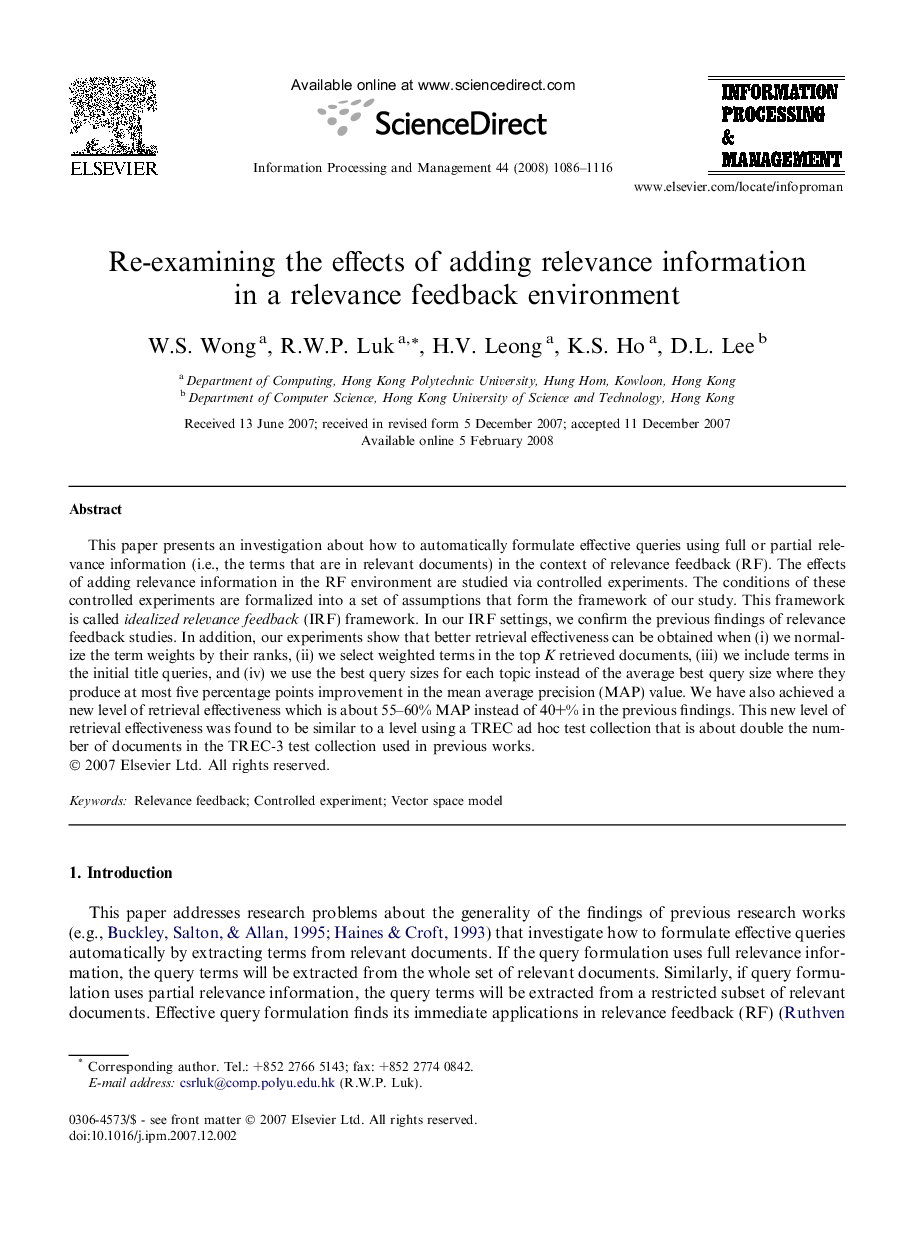| Article ID | Journal | Published Year | Pages | File Type |
|---|---|---|---|---|
| 515583 | Information Processing & Management | 2008 | 31 Pages |
This paper presents an investigation about how to automatically formulate effective queries using full or partial relevance information (i.e., the terms that are in relevant documents) in the context of relevance feedback (RF). The effects of adding relevance information in the RF environment are studied via controlled experiments. The conditions of these controlled experiments are formalized into a set of assumptions that form the framework of our study. This framework is called idealized relevance feedback (IRF) framework. In our IRF settings, we confirm the previous findings of relevance feedback studies. In addition, our experiments show that better retrieval effectiveness can be obtained when (i) we normalize the term weights by their ranks, (ii) we select weighted terms in the top K retrieved documents, (iii) we include terms in the initial title queries, and (iv) we use the best query sizes for each topic instead of the average best query size where they produce at most five percentage points improvement in the mean average precision (MAP) value. We have also achieved a new level of retrieval effectiveness which is about 55–60% MAP instead of 40+% in the previous findings. This new level of retrieval effectiveness was found to be similar to a level using a TREC ad hoc test collection that is about double the number of documents in the TREC-3 test collection used in previous works.
